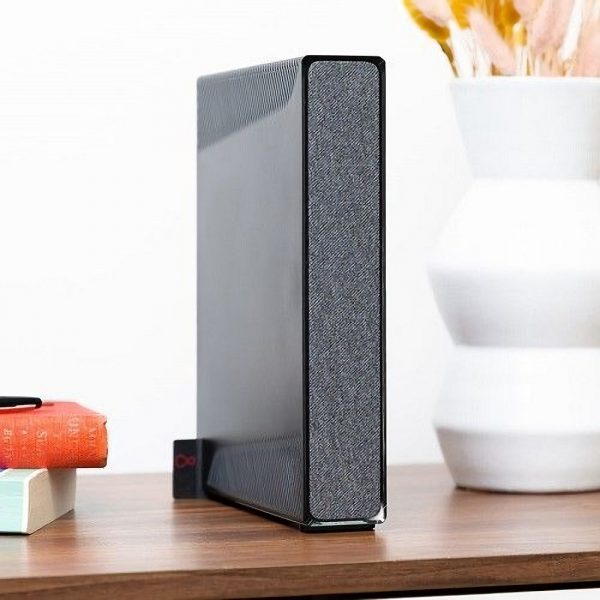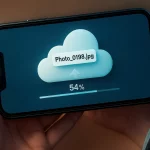Virgin Media Becomes First Big UK ISP to Adopt Apple Pay and Google Pay

Broadband, TV and phone provider Virgin Media (O2) this morning claims to have become the first major UK telecoms provider to enable digital payment systems, Apple Pay and Google Pay, for recurring contract payments. The hope is that this will provide a “convenient alternative to traditional direct debits“.
The provider is known to have been conducting trials of this for a little while, but at launch it’s currently only available to new customers who sign-up for their service. Virgin Media said they’re “working on expanding the availability of Apple Pay and Google Pay to existing customers in 2025“, alongside a number of other digital initiatives designed to enhance customers’ experience. But a specific date is not yet known.
Virgin states that these new payment methods should provide a quicker and more efficient customer journey, while also ensuring “fully secure transactions, with both Apple Pay and Google Pay requiring biometric authorisation such as Face ID or Touch ID to verify the customer’s identity“.
Advertisement
Christian Hindennach, Chief Commercial Officer at VMO2, said:
“We are always looking at new and innovative ways we can make our customers’ lives easier and provide unmatched capabilities that enhance the customer experience in our digital channels. Through this rollout, it is now quicker and more convenient than ever for a new customer to sign up to our services, with the availability of digital payment methods such as Apple Pay and Google Pay removing the need to enter direct debit details and significantly streamlining both the sign-up process and how future monthly bills are paid.
While we will continue to support direct debits, it’s vital that we evolve and utilise the technology available to give our customers greater flexibility. They can now pay for their broadband, TV or landline contract in the same way they’d buy a cup of coffee or order clothes online.
This is one of many exciting plans we’ll be announcing over the coming months aimed at improving our customers’ experience with us.”
The ISP also revealed that they’re “exploring use cases is open banking“, with new features and functionality set to be introduced in the “coming months“. For example, open banking could enable new customers, who still wish to pay via direct debit, to sign in to their online banking during the sign-up journey and have their direct debit details automatically populated in a fast and biometrically secure way – providing a more seamless and automated checkout process and reducing the risk of typing errors.
A recent trial found that 60% of customers utilised this technology in the sign-up process, and Virgin Media is now working to deploy the solution on a permanent basis in future.
Mark is a professional technology writer, IT consultant and computer engineer from Dorset (England), he also founded ISPreview in 1999 and enjoys analysing the latest telecoms and broadband developments. Find me on X (Twitter), Mastodon, Facebook, BlueSky, Threads.net and Linkedin.





















































Apple and Google payment methods sound great but I don’t know how keen I would be to let companies view my bank accounts and spending as to me, that’s personal and I don’t want it used for advertising purposes.
Not so, the user has to do a set up to enable payments to be made, e.g. linking your VM account to Apple Pay or Google Pay and authorising recurring contract payments. It’s not so different from authorising VM to get money from you by direct debits. Nobody can view your view bank accounts.
But why would you do that? Serious question, Apple pay is a debit from your bank account that for convenience adds an extra party. That’s not a problem when you are actually at a shop and can return there if there are any issues. But online the last thing I want to add is another party to have to chase in circles if there’s an issue.
This stinks of either a solution in search of a problem or if I was cynical and given it’s Virgin, a way to avoid refunds for as long as possible if at all.
I would not use Open banking either. Noo, Way
Not sure why they need other means of paying, I should think most people these days have a bank account and can pay by direct debit
@Ad47uk not trying to convince you to use something you don’t want to, but I want to provide a counter point for anyone who is undecided. Open banking is surprisingly good. I now use it wherever supported in lieu of copy pasting accounts and sort codes to perform transfers. It is seamless, and less error-prone, and no, the receiving agent doesn’t get to see your account balance.
They get to see your name and account number only, it is biometrically authenticated, and can serve as a form of ID which makes it a bit more secure than the old way of setting up a direct debit that relies on delays and hoping a potential victim will notice the direct debit being setup before money is taken.
That said, I’m surprised that VM didn’t just use Open banking for setting up the direct debit. I fail to see what advantage Apple/Google pay provides other than being convenient on a phone. As far as the ability to cancel recurring subscriptions, Apple and Google both make that ridiculously easy too.
@Spurple, I am sure it is good, for some people, depending on what they are doing, but I don’t trust it, I don’t fancy the idea of someone having that sort of access to my bank account. Also, it is being used for things it should never be used for., There was a supermarket that wanted people to link their loyalty card to their bank via Open banking for them to get more points. No flipping way, I hate loyalty cards anyway, but no way would I allow them access to my bank account. They have done away with that now, maybe not enough people went for it, or some other reason. We will never know.
How many times do you set up a direct debit? The last time was when I change my broadband over a year ago and before that was when i change my energy company and that was around 4 years ago.
My mobile phone sim only service is taken out with my debit card, which is a bit of a shame, I would prefer it by direct debit, but there you go.
Yeah, virgins great at taking your money but appalling when you try to cancel, you follow their instructions and they try to charge you £60 unless you cancel your direct debit and tell them to listen to recorded phone calls and try to charge them for storage to pick up their equipment
So it will be now harder to cancel or control it.
feels like a regressive step. Direct Debit is extremely customer friendly, and banks/billing companies are held to the various rules that apply to that type of payment. What happens if they screw up with a card payment, especially from a debit card?
Unsure of the “convenience” angle to either this or the other announcement about open banking. Entering a six digit sort code and an eight digit account number is not exactly the most difficult task in the world.
Last time I checked, all non-cash banking is a form of “digital payment”
I agree, DD is also protected in that if money goes out that is not supposed to, you will get it back.
I don’t think in all the years I have used DD I have ever had a problem with it.
I’ve got to say as a former Banking CS agent, the last thing I would be doing is making a recurring payment via Google or Apple pay, which then makes what is essentially a debit card transaction. Cancelling a Direct Debit is a lot easier than a recurring debit payment.
Direct Debit indemnities could be dealt with by us as Personal Banking agents but debit card payments had to be dealt with by a dedicated department.
But then I am hardly the person this is aimed at because I aren’t a user of Google or Apple pay, it is just not a convenience when you are used to carrying a wallet in your pocket at all times.
I use Google Pay for part-payment of my BT bill.